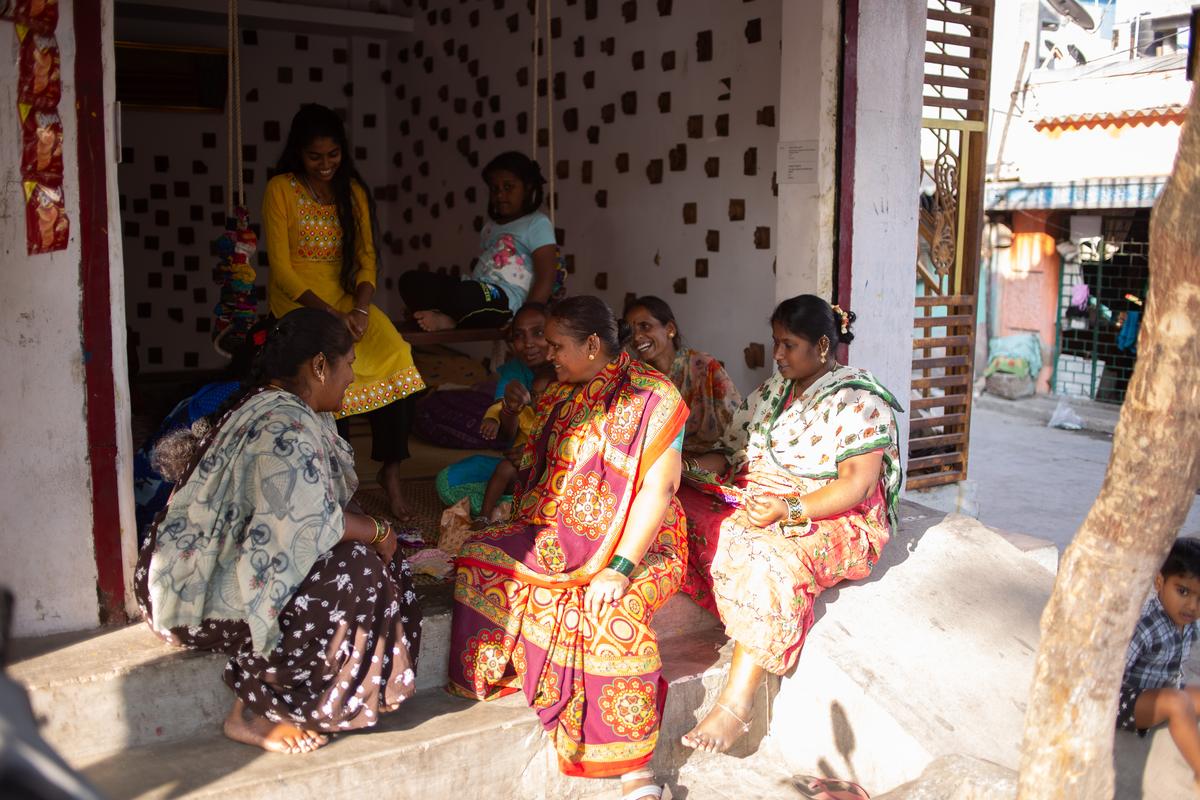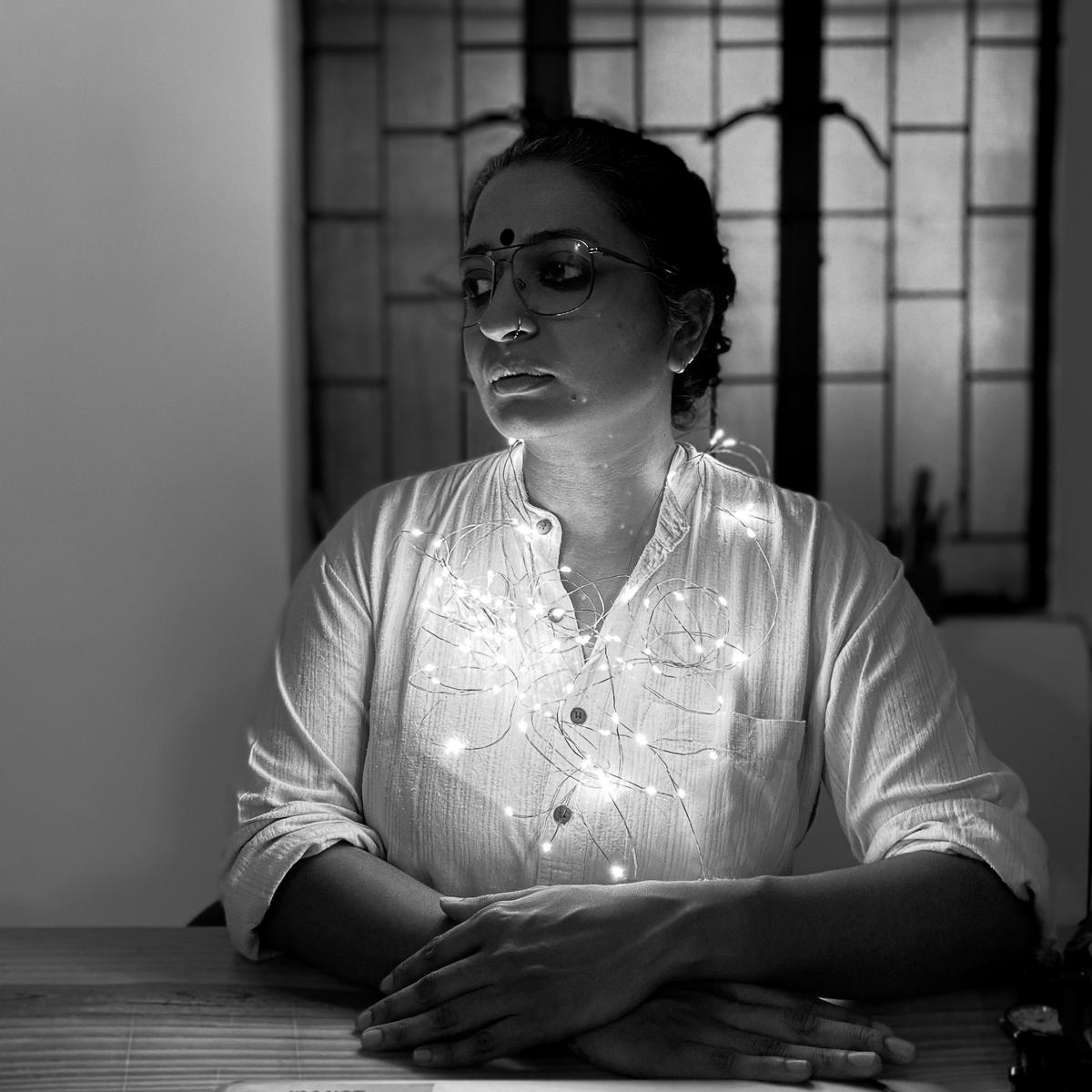A Bhagath Singh’s mother, Kalavathi, would always eye the head of the biggest fish in Ennore’s Thazhankuppam market. “These fish would weigh up to five kilograms,” says the Puducherry-based independent researcher. Once she secured the head, she would go home and cook it whole in a fiery kulambu.
Bhagath’s memories of his late mother and her love for cooking seafood, forms the opening chapter of the recently-released bilingual book, Seasoned by the Sea (Neithal Kaimanam), published by Uyir Publications. The book, a compilation of recipes from across the Coromandel coast, has photos by independent photographer M Palanikumar. It is the result of a series of interviews and research by Bhagath and geographer R Niranjana between 2021 and 2023.
Once at home, the women were at ease, talking about their everyday lives and family as they chopped onions and sliced fish.
| Photo Credit:
M Palanikumar
Bhagath and Niranjana have curated 43 recipes with a focus on Ennore and Pazhaverkadu (Pulicat), apart from Kasimedu, Besant Nagar, Pattinapakkam, and Puducherry. Bhagath, a native of Ennore, is a post-doctoral researcher with the French Institute of Pondicherry while Niranjana teaches Geography at Queen Mary University of London. Niranjana, a former journalist, was in Ennore in 2021 for a research project. During her many interactions with fisherwomen and fish sellers at the Thazhankuppam market, she realised how readily they shared recipes.
“At one point, I thought, why not put these together as a book,” she says.
The photos not only capture the vibrancy and variety of the food, but also the warmth of the women behind them.
| Photo Credit:
M Palanikumar
Along with Bhagath, she set out to convince these women to demonstrate their recipes. It is not easy to get a fisherwoman to indulge in a leisurely conversation when she is at work, let alone get her to take one to her kitchen from the market. “She is either busy or exhausted,” says Bhagath. Niranjana though, kept at it, despite their unpredictable schedules.
Once at home, the women were at ease, talking about their everyday lives and family as they chopped onions and sliced fish. It is these stories that form the backbone of the book. Interestingly, the chapters are named after the women who shared the recipes: Madhavi from Kattukuppam, Lakshmi and Saroja from Annai Sivagami Nagar, Uma from Odaimanagar… Palanikumar’s photos not only capture the vibrancy and variety of the food, but also the warmth of the women behind them.

Bhagath and Niranjana have curated 43 recipes with a focus on Ennore and Pazhaverkadu
| Photo Credit:
M Palanikumar
Through the recipes, the authors help readers get a glimpse into the culture and ecology of the Coromandel coast. Mekala, for instance, while she shares madavai recipes, talks about how her husband Desingu would catch fish using a small purse net in the river; Sangeetha shares stories about her life after she married a fisherman from Ennore, even as she shares her kavalan meen kulambu recipe; Saanthi and Sokkammal from Thoniravu village, resettled from Sriharikota, talk about working and living through the struggle of being displaced, as they prepare prawn urundai kulambu.
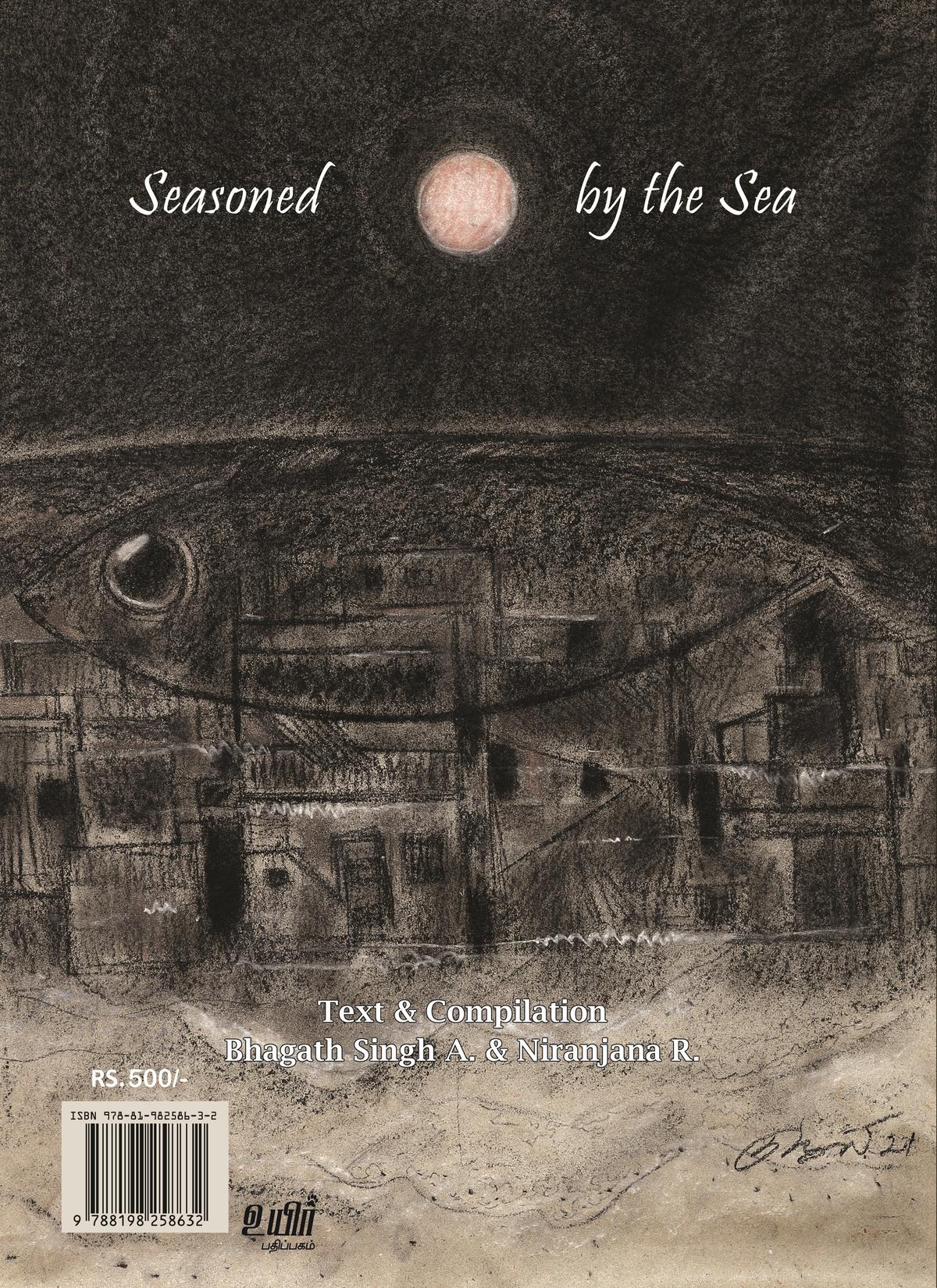
The book has been designed by Anthoni Guruz, who has also contributed line drawings.
| Photo Credit:
Special arrangement
Bhagath says that they have focussed on sea food varieties that are prominent to each region. “We have over 10 crab recipes from Ennore and Pazhaverkadu alone,” says the 40-year-old, adding: “There is puttu, kulambu, biryani, and rasam.” The book documents several unique, region-specific dishes; these include prawn suttadhu, parai kudal kulambu, prawn kulambu with shell on, prawn vaada, conch pepper fry, and thirukkai pakoda.
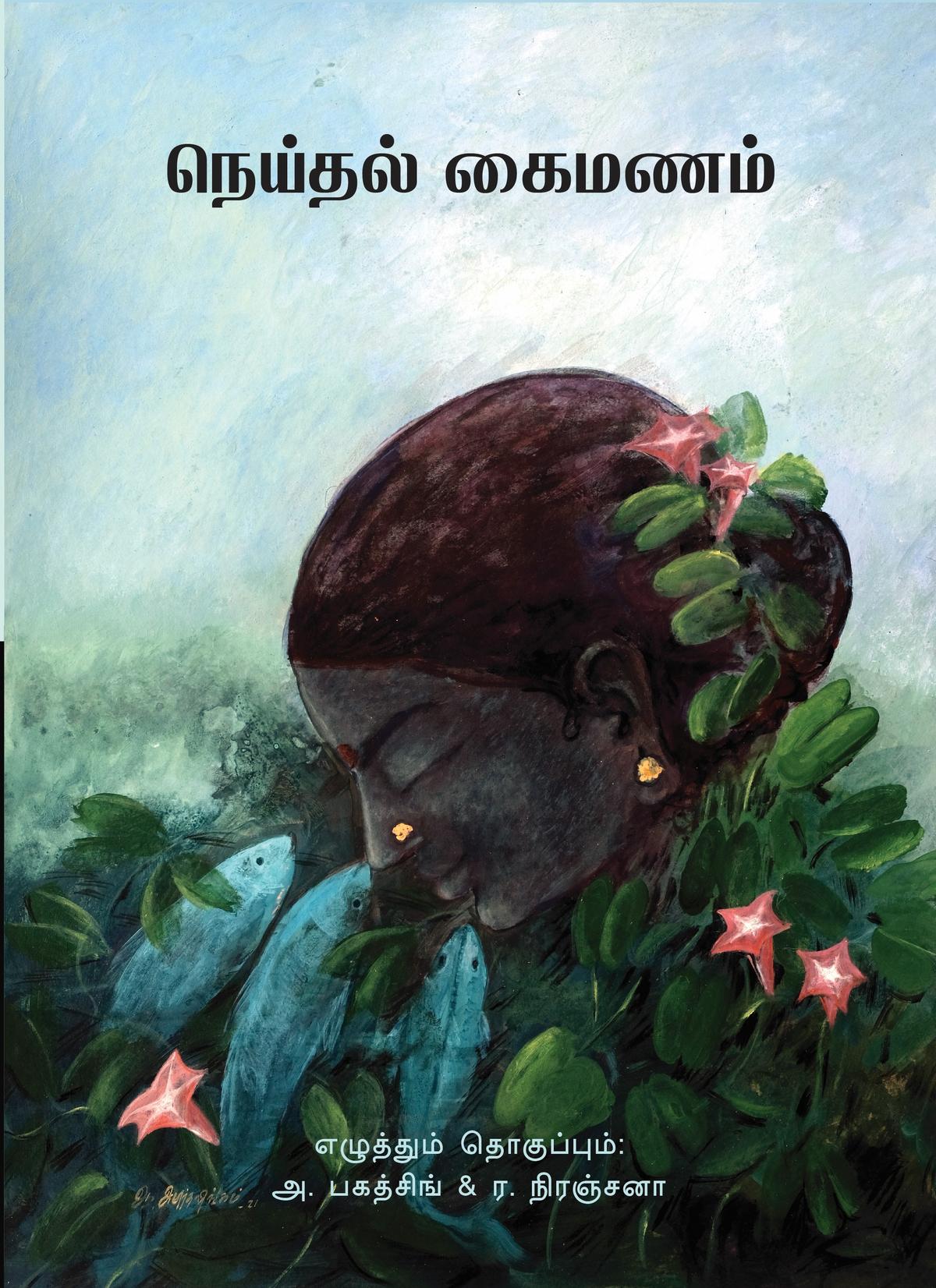
The book documents several unique, region-specific dishes
| Photo Credit:
Special arrangement
Bhagath points out that they have also turned the spotlight on the politics surrounding the industrialisation of Ennore. “Ennore’s identity has been reduced to its pollution, and the resulting stigmatisation. We wanted to show how the people have adapted; their culture and politics too,” he says. Niranjana adds that their book is an attempt at showing that life in Ennore can also be “vibrant and joyful” despite the pollution and degradation over the years.
The book illustrates how fisherfolk from the Coromandel coast, all the way up to Nagapattinam, use plenty of tamarind and chilli powder in their cooking
| Photo Credit:
M Palanikumar
For a lot of people in the city, seafood is restricted to sankara (red snapper), vanjiram (seer), and vaaval (pomfret). “But there is so much variety that is not known. We wanted to introduce them,” says Bhagath adding that this will also help in ecological conservation.
The book illustrates how fisherfolk from the Coromandel coast, all the way up to Nagapattinam, use plenty of tamarind and chilli powder in their cooking. “These two are the main ingredients,” points out Bhagath. “Coconut is not used much, perhaps due to less availability,” he adds. “Raw mango is added to the kulambu to enhance the sourness of the tamarind, depending on the type of fish: mathi and nethili, for instance.”
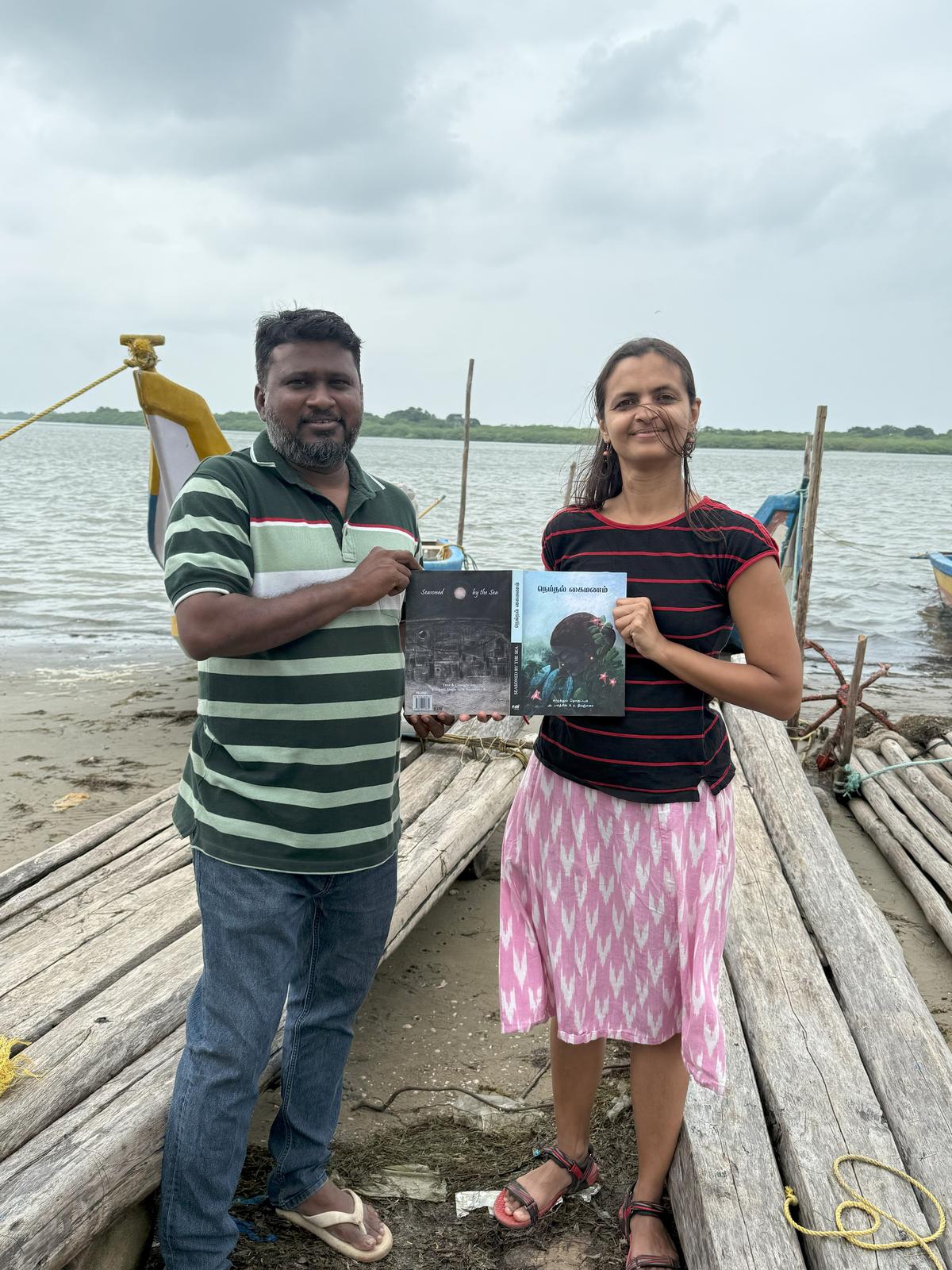
A Bhagath Singh and R Niranjana with their book
| Photo Credit:
M Palanikumar
The response from the fisherwomen, evident during their two events in Ennore and Pazhaverkadu after the launch, was heart-warming. “When they saw the book, they felt happy that something they’ve been doing for a living is now being seen as art,” says Bhagath. “They felt that not many people respect their profession, let alone them. The book changed these perspectives.”
Seasoned by the Sea is available at neidhal.net
Published – March 27, 2025 08:01 am IST






